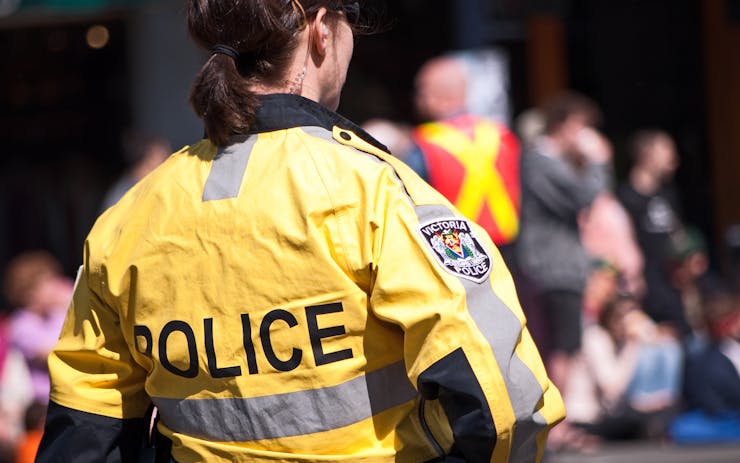Many Canadians are pleased that the federal government is going to legalize recreational marijuana next July but others are not—and some of the most vocal critics of that date are those who will be responsible for enforcing the new laws.
The deputy commissioner of the Ontario Provincial Police made that abundantly clear on Sept. 12, when he appeared before the parliamentary health committee studying the proposed legislation. “If legislation is ready to go in July 2018, policing will not be ready to go in August. It’s impossible,” Rick Barnum stated plainly. He said the legislation represents “a great step” but added that it should be taken “slowly and properly.”
Mike Serr, co-chair of the Canadian Association of Chiefs of Police drug advisory committee, asked members of parliament to consider giving law enforcement officials more time to get ready—a request that the association had submitted in writing days earlier.
Law enforcement officials say they need more time to teach police how to enforce the new laws.
Law enforcement officials across the country say they need more time to teach police officers how to enforce the new laws. They also need time to double the number of officers who are certified to conduct roadside tests for drug-impaired driving. In July, Canadian Association of Chiefs Of Police President Mario Harel said about 2,000 certified officers would be needed, more than three times the current total.
In an interview with Leafly, Wayne Kalinski, vice chair of the Ontario Association of Chiefs of Police’s substance abuse committee, explained that Canadian police officers have to be sent to Arizona to learn how to detect drug impairment in drivers. In addition to being time-consuming, it’s costly, he said, as is replacing those officers during their absence.
Ottawa recently responded to the law enforcement community’s pleas for more resources by designating $274 million to help police and border officials cover costs stemming from the new law — but the timing was far from ideal. The money will start to flow after the legislation is enacted rather than before, which is when police say they need it.
Kalinski points to other problems that have yet to be addressed.
While a breathalyzer measures the amount of alcohol in a driver’s blood stream, there is currently no equivalent device for detecting THC, he says, at least not one that has been given the stamp of approval by Canadian law enforcement officials.
But even if there was such a device, how much THC would be considered too much? Though a driver with two nanograms of THC per milliliter of blood would be considered legally impaired under the new legislation, there is no scientific consensus on how much THC constitutes impairment. Also, that THC limit is low enough that a person could exceed it a week or two after ingesting cannabis.`
What if the federal government refuses to delay legalization?
As Barnum told the House of Commons committee, if legislation is enacted next July, police won’t be ready for six months to a year afterwards, creating a window of time during which organized crime could flourish. That would cause so much damage it would be “very, very hard [for law enforcement to] ever regain a foothold,” he said.
Kalinski told Leafly “police would continue to enforce laws as best they could” if the legislation was enacted in July but they are hoping the government will give them more time and resources.
So far, Ottawa seems unwilling to budge on the legalization date. In June, Prime Minister Justin Trudeau said Ottawa had given authorities “lots of time” to prepare for legalization and added that it was “time to move on.”
Former Toronto police chief Bill Blair, who is now parliamentary secretary to the minister of justice and who served as chair of the federal task force on marijuana legalization, recently told reporters he doesn’t have authority to approve or deny a delay but seemed to imply one wasn’t necessary. “I think it’s important that we focus on getting this job done as quickly as we are able. We have established a pretty tight timeline, a difficult timeline, but that challenge is I think an important one, and everybody is working hard to get it done.”
We want to get our people proper training and equipment,” Kalinksi told Leafly. “There is no point in enacting legislation without us being prepared. That would just put us behind the eight ball.”





